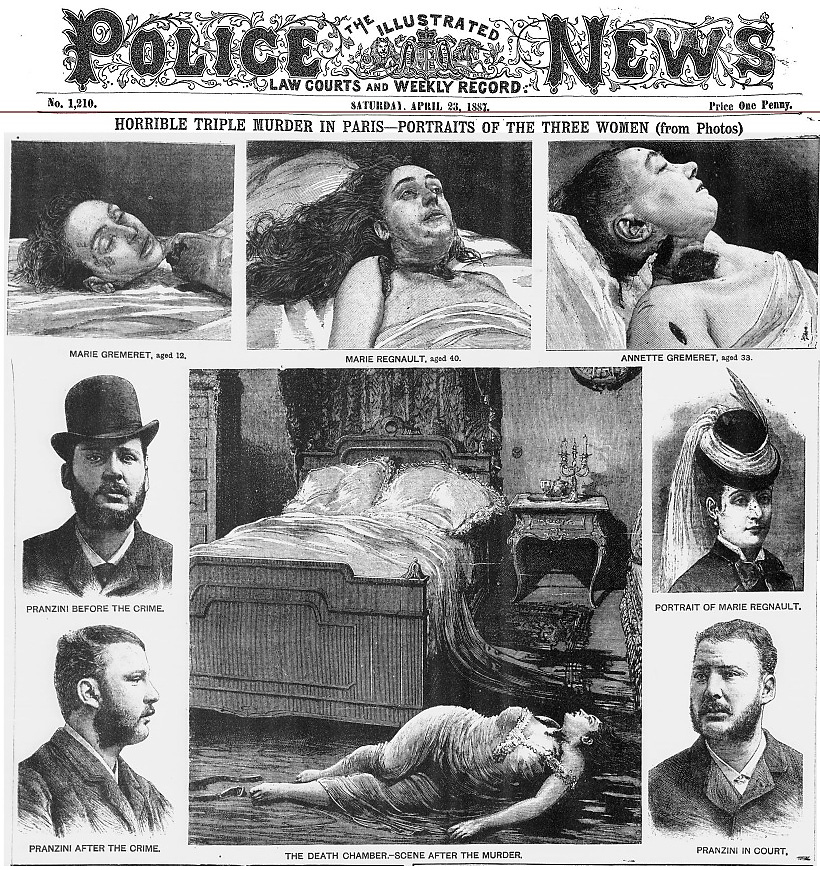
Photo from Captured and Exposed
Louis Pranzini and the Laborers
Today, October 1st, is the feast day of The Little Flower, St. Therese of Lisieux, one of only thirty-six saints to be declared a Doctor of the Church. In his twenty-six year pontificate, Pope John Paul ll canonized around 482 saints–only one of whom he conferred the honorific of doctor. Despite these accolades, St. Therese of Lisieux felt alien to me. I couldn’t identify with her “little way.” Louis Pranzini and the Laborers: Lesson from St. Therese.
Until I read an exquisite book on Saint Therese and got a glimpse of the reasoning behind Pope John Paul’s decision to elevate this French Carmelite nun who died at twenty-four.
“Many books have been written on the “little way” as a means to holiness,” Father Marc Foley writes. “This is not one of them. This is about Therese’s spirituality as a means of preserving sanity in an often insane world.(Italics mine.) Perspective was at the core of Therese’s sanity. She saw all things in the light of eternity. This vision gave her a sense of proportionality that kept her sane.”
The Love That Keeps Us Sane
More on Father Foley’s book momentarily. But first, an explanation of this peculiar title–Louis Pranzini and the Laborers., and strange image.
The murders of a a courtesan, her servant and servant’s daughter shocked 1887 France. The women are graphically and obscenely pictured in this newspaper image guaranteed to foment the French citizenry. Hence fourteen-year-old Therese Martin heard about accused murderer Louis Pranzini’s –also pictured on the left and right of the image–scheduled execution. In The Story of a Soul, Saint Therese wrote, “Jesus made me a fisher of men. I longed to work for the conversion of sinners with a passion I’d never felt before. Love filled my heart. I forgot myself and henceforth was happy.”
Lesson from St Therese.
It’s the key, isn’t it? “I forgot myself and henceforth was happy.” Louis Pranzini and the Laborers. Will we live out our lives in theodrama or egodrama?
Remember last Sunday’s Gospel? The one where the laborer who worked for just one hour gets the same wage as the one who worked for eight? In the hot sun? It’s provocative, intentionally so. It isn’t possible to listen to that passage and not think of those who came late to truth, to the faith, to Truth.
Like me.
Jesus told his disciples this parable:
“The kingdom of heaven is like a landowner
who went out at dawn to hire laborers for his vineyard.
After agreeing with them for the usual daily wage,
he sent them into his vineyard.
Going out about nine o’clock, the landowner saw others standing idle in the marketplace,
and he said to them, ‘You too go into my vineyard,
and I will give you what is just.’
So they went off…So when the first came, they thought that they would receive more,
but each of them also got the usual wage.
And on receiving it they grumbled against the landowner, saying,
‘These last ones worked only one hour,
and you have made them equal to us,
who bore the day’s burden and the heat.’
He said to one of them in reply,
‘My friend, I am not cheating you.
Did you not agree with me for the usual daily wage?
Take what is yours and go.
In his homily, Bishop Barron declares that no Gospel reading causes the consternation of this one. He writes many find this “the most disturbing of all Christ’s gospels.”
Do any of us really find this answer satisfying? Don’t most of us instinctually side with the complainers? Have you noticed that the one virtue that even little children seem implicitly to understand is justice? “It’s just not fair!” Well, this just doesn’t seem fair.
But we should squint at this story through the lens of the prophet Isaiah’s reminder that God’s ways are not our ways. Does this story represent an undermining of justice? No; rather, it is a showing forth of the justice that flows from God’s vision of things.
Gospel Reflection Sunday September 25
Consider that fourteen-year-old future saint who was given the grace to thirst for souls: no exceptions.
Therese understood the danger of curiosity
Her sister Celine observed that Therese never asked for news. The nun who was considered one of the poorest examples of a Carmelite kept “custody of her senses.” It’s an arresting phrase, isn’t it? A most fitting way to stay away from gossip and detraction, minding her own business.
Father Marc Foley explains:
These practices of restraint, which traditional spirituality has labeled as “custody of the senses,” may sound archaic to the modern ear; they smack of an outdated spirituality. But if we practice them rightly, we will discover that they can help keep us sane.
Custody of the senses helps keep us sane because it curbs curiosity and helps heal the impulsiveness that underlies it.
Impulsiveness is a form of insanity that deprives us of self-determination because it robs our choices of intentionality. In his book Neurotic Styles, psychologist David Shapiro writes the following of the experience of impulse: It is an experience of having executed a significant action, not a trivial one, without a clear and complete sense of motivation, decision, or sustained wish. It is an experience of an action, in other words, that does not feel completely deliberate or fully intended.
The Love That Keeps Us Sane
We know better than to judge another, don’t we? An honest examination of our conscience reveals our rash judgments. In fact Saint Augustine writes that only God can feed us with judgment.
“What any man is today, that man scarcely knows. Still in some way, he does know what he is today. What he will be tomorrow, however, he does not know. Hence the Lord, who assigns to each what is owed to him, feeds his sheep with judgment, giving some things to one group, other things to another, and to each his due. For he knows what he is doing. With judgement he feeds those whom he, being judged himself, redeemed. Therefore he himself feeds his sheep with judgment.
Louis Pranzini and the Laborers

Louis Pranzini and the Laborers: Lesson from St. Therese



